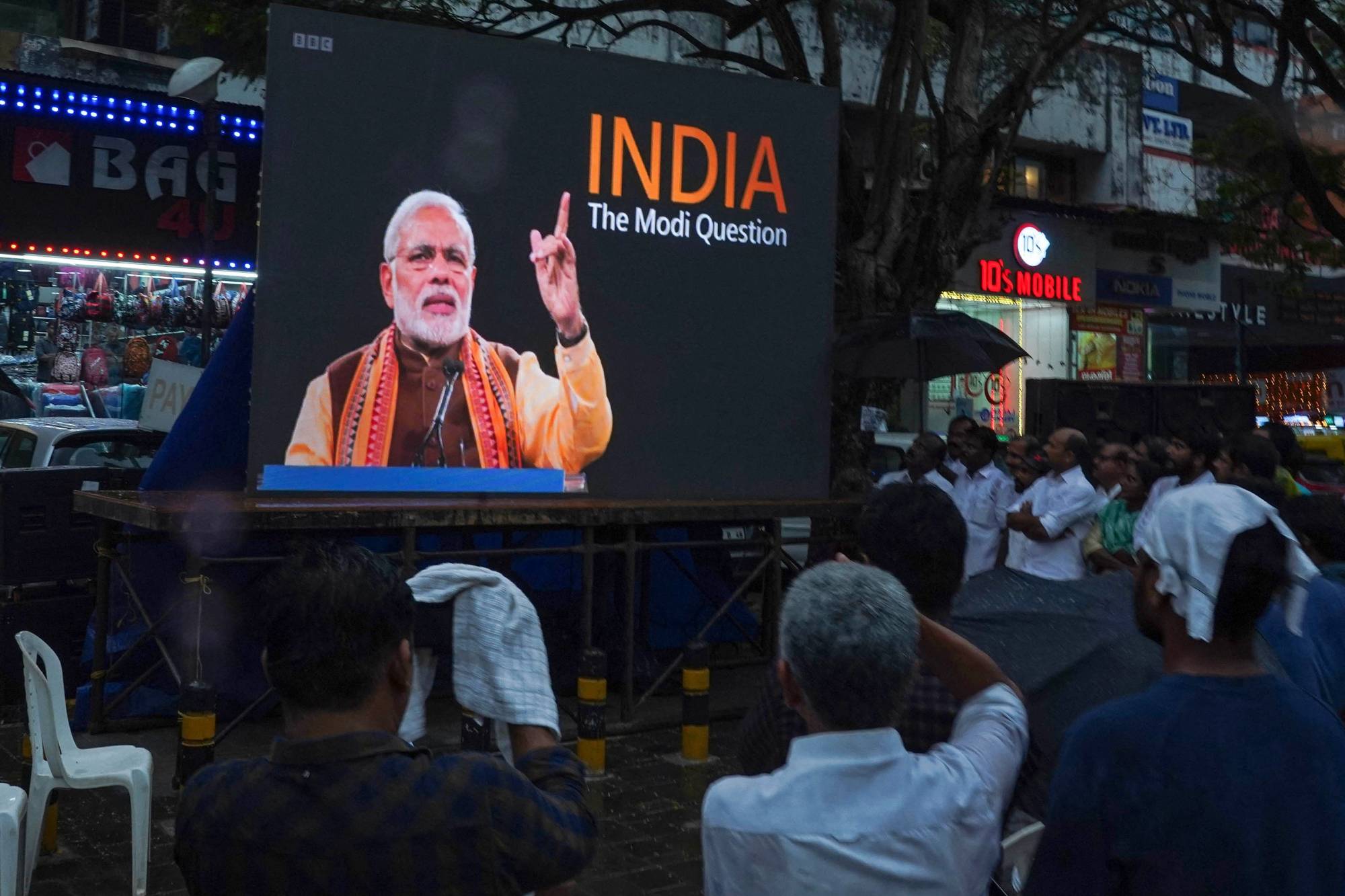A visit to the BBC’s offices in New Delhi and Mumbai by income tax officials is drawing international attention to the precarious state of press freedoms in India. The government of Prime Minister Narendra Modi has described it euphemistically as a "survey,” which is an unsubtle way to characterize a tax raid.
There’s no subtlety to the timing, either: Nearly three weeks ago, the British broadcaster aired a documentary drawing attention to Modi’s alleged role in deadly sectarian riots that wracked his home state of Gujarat in 2002. Modi is notoriously thin-skinned on this front: His government banned the documentary and tried to block clips on social media platforms as well as screenings in universities.
Government spokespersons and leaders of Modi’s ruling Bharatiya Janata Party have been building a head of steam against the BBC, accusing it of retaining a "colonial mindset.” (The broadcaster has defended the documentary as "rigorously researched according to the highest editorial standards.” The documentary cites a British Foreign Office report, which raises questions about Modi's actions during the riots, which claimed more than 1,000 victims, mostly Muslims.)



















With your current subscription plan you can comment on stories. However, before writing your first comment, please create a display name in the Profile section of your subscriber account page.